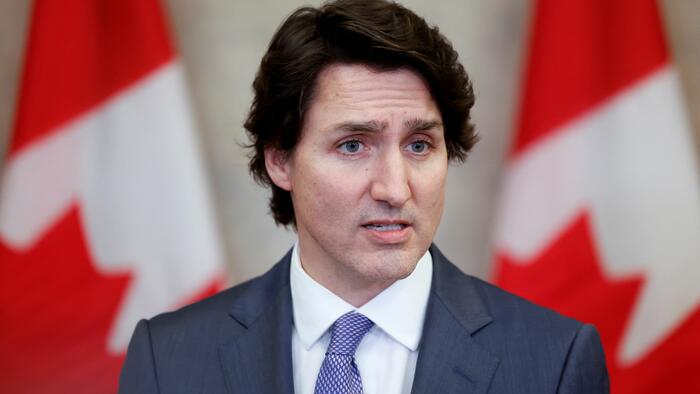Canadian Prime Minister Justin Trudeau is grappling with a severe political crisis within his Liberal Party, as discontent among party members escalates. The growing chorus calling for Trudeau’s resignation has gained prominence following the unexpected departure of Chrystia Freeland, his finance minister and a pivotal ally in the government. With Freeland’s resignation, which she attributed to plans for a cabinet reshuffle just days before a significant fiscal speech, cracks in Trudeau’s leadership have become more pronounced. The shock of Freeland’s exit has surfaced dissatisfaction among various party members, including Jenica Atwin, a Liberal parliamentary secretary from New Brunswick, who has openly declared she would not seek reelection if Trudeau remains as leader.
Atwin’s bold statement has found traction within the party, most notably echoed by Chad Collins, a Liberal MP from Ontario. He disclosed that approximately 50 Liberal MPs have united in their demand for Trudeau to step down, representing about one-third of the party’s House of Commons representation. Collins was candid regarding the concerns surrounding Trudeau’s leadership, questioning the advice the Prime Minister is receiving. He attributed the current situation to poor decision-making, culminating in what many perceive as damaging consequences to the Liberal Party’s stability and prospects ahead of the next election scheduled for 2025. The internal dissent within the party appears to stem not only from strategic disagreements but also from the fear of a potential electoral defeat should the current trajectory continue.
Trudeau’s leadership has become a focal point of discussion, particularly after Freeland’s resignation served as a catalyst for deeper scrutiny of his governance. Public appearances by Trudeau have dwindled, with the Prime Minister canceling his traditional end-of-year media engagements, which raises questions about his capacity to rally the party and present a united front. Justice Minister Arif Virani recently sidestepped direct inquiries regarding Trudeau’s leadership during a press conference, focusing instead on his justice portfolio and affirming confidence in Trudeau’s direction. This distancing from leadership discussions may suggest a broader hesitation among party members to openly criticize the Prime Minister lest it further fractalize the party’s ranks.
As the political landscape shifts, polls indicate that the Conservative Party, under Pierre Poilievre’s leadership, is positioned to perform well in the upcoming elections. There is growing urgency among Liberal MPs to address the internal strife, as articulated by Wayne Long from New Brunswick in an open letter advocating for decisive action to prevent a potentially historic defeat. The discontent is leading to serious conversations within the party about the need for new leadership to revitalize the party’s image and appeal to voters dissatisfied with the current administration. The stakes are high, and party members are increasingly aware that without a change, the Liberal Party may not only lose the upcoming election but face a profound identity crisis.
Collins’ concerns reflect a troubling prediction for the future of the Liberal government, warning that unwavering support for Trudeau could prompt the departure of seasoned politicians, which would diminish the party’s legislative muscle. Such an exodus could leave the party with a “skeleton crew” effect, discouraging potential candidates from entering politics and jeopardizing the party’s capacity to present a strong alternative to the Conservatives. The apprehension surrounding Trudeau’s leadership is not just a matter of individual opinion but has begun to morph into a collective sentiment across a significant segment of the Liberal caucus.
As pressure mounts, the next steps will be crucial for Trudeau and the Liberal Party. The Prime Minister must navigate a pathway that addresses the concerns of his party while enhancing his standing among the electorate. The political crisis brought on by Freeland’s resignation may serve as either a catalyst for new leadership dynamics or a debilitating factor that exacerbates the challenges faced by the Liberal Party ahead of a pivotal national election. Whether Trudeau can pivot away from this turmoil will define not only his political future but also the Liberal Party’s faith in reclaiming its place as a leading political force in Canada.

